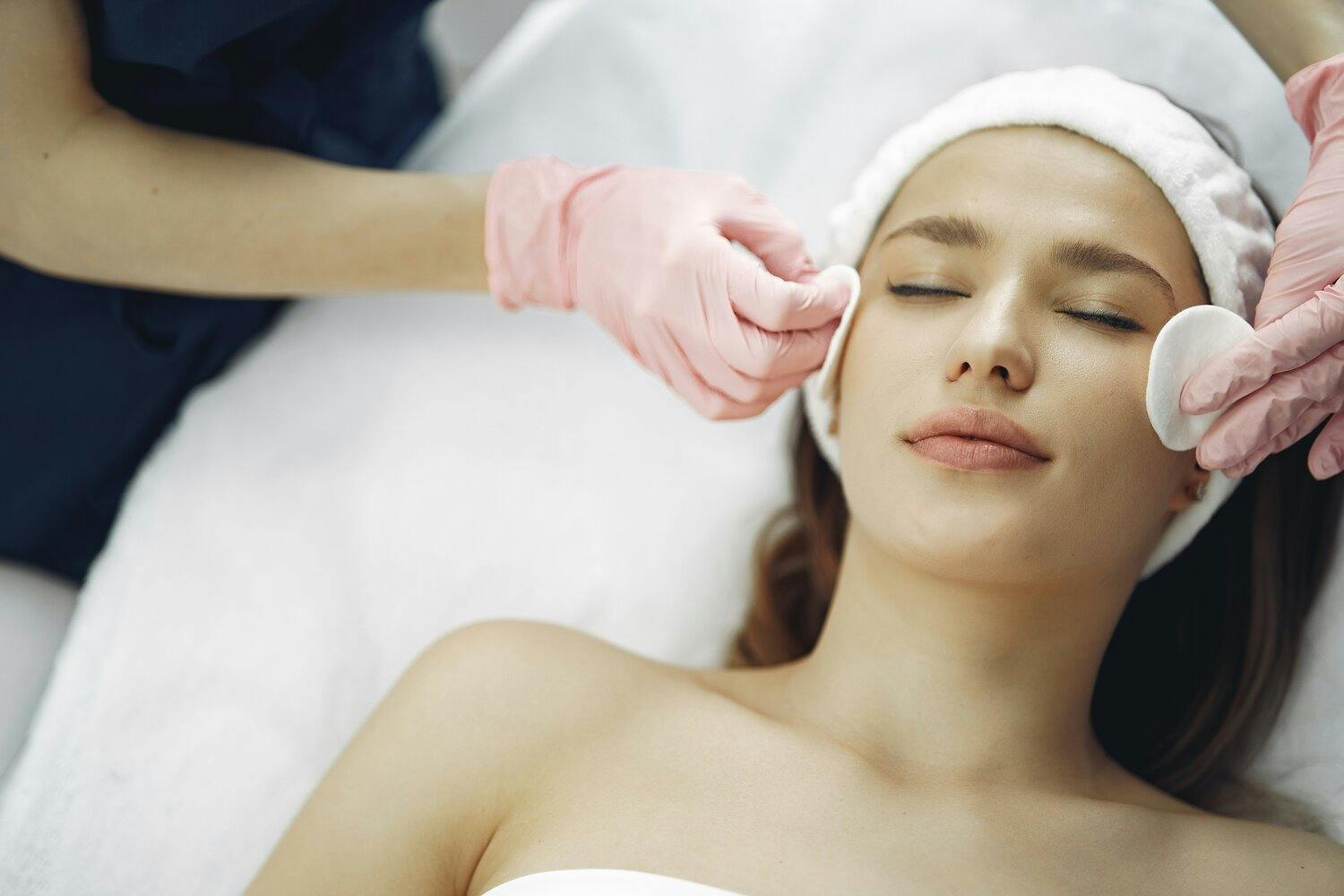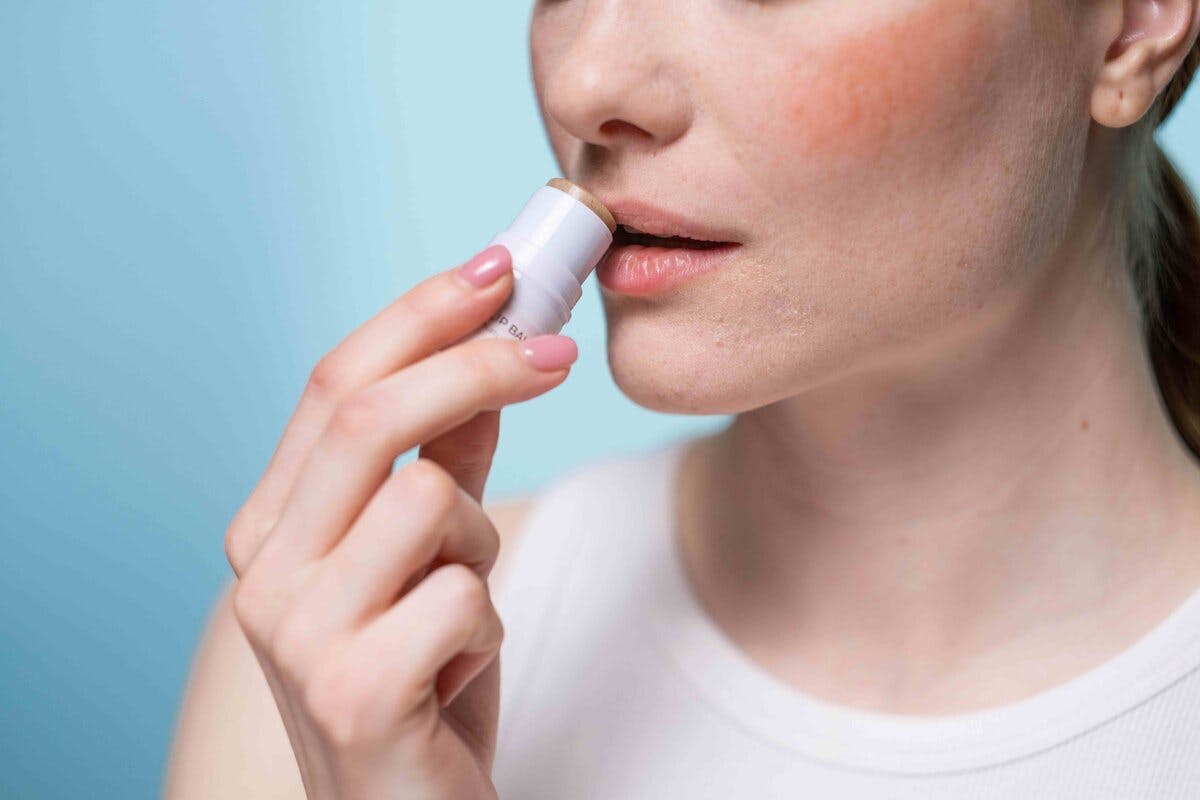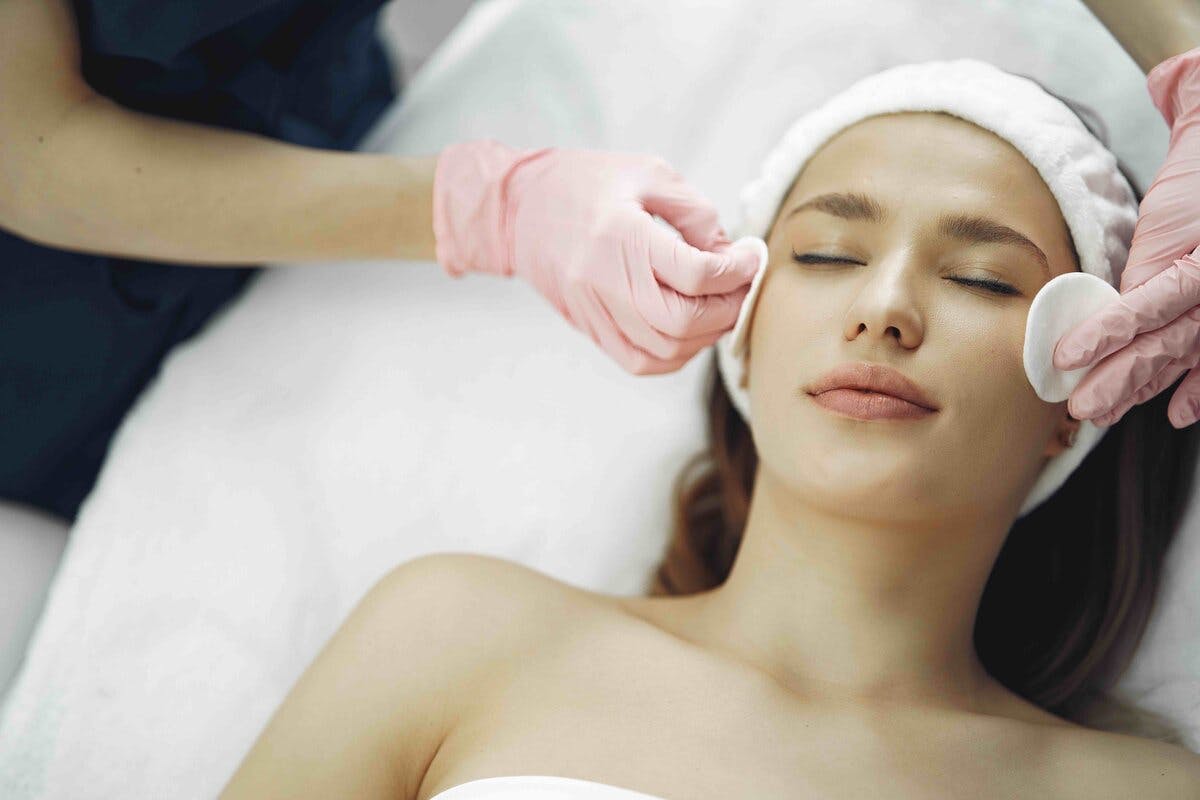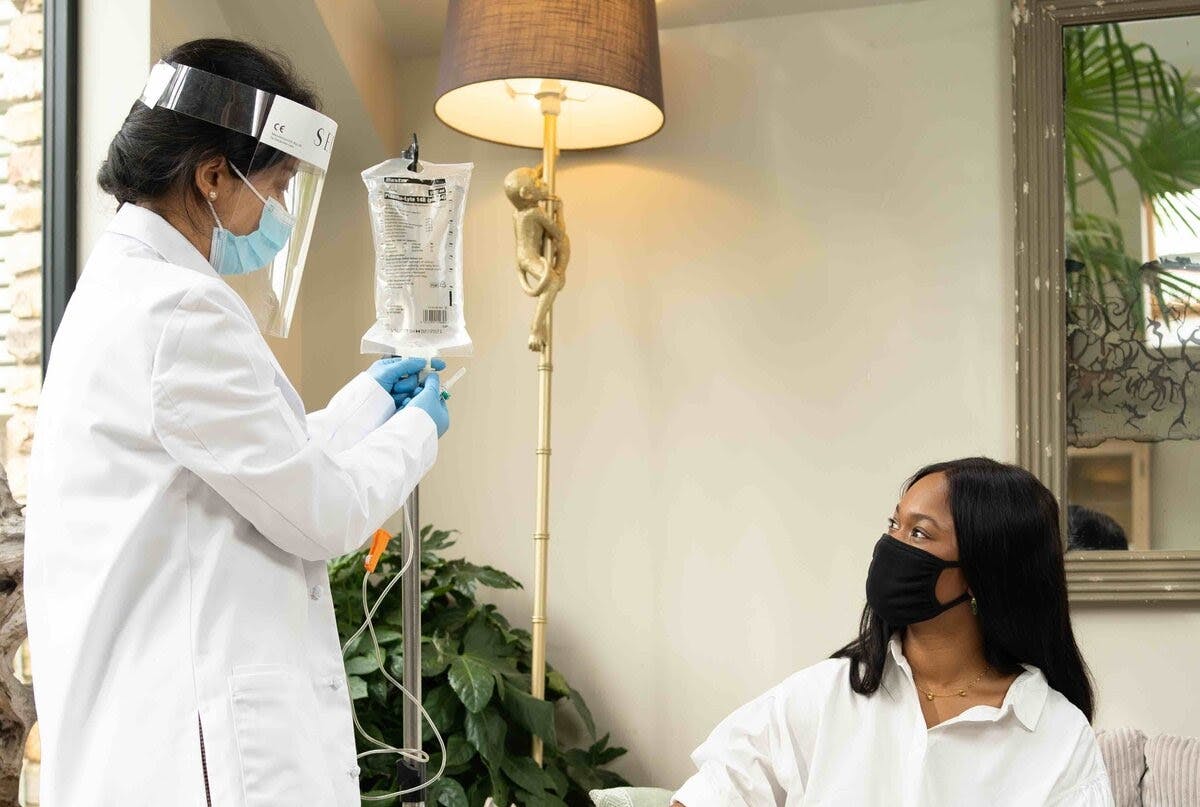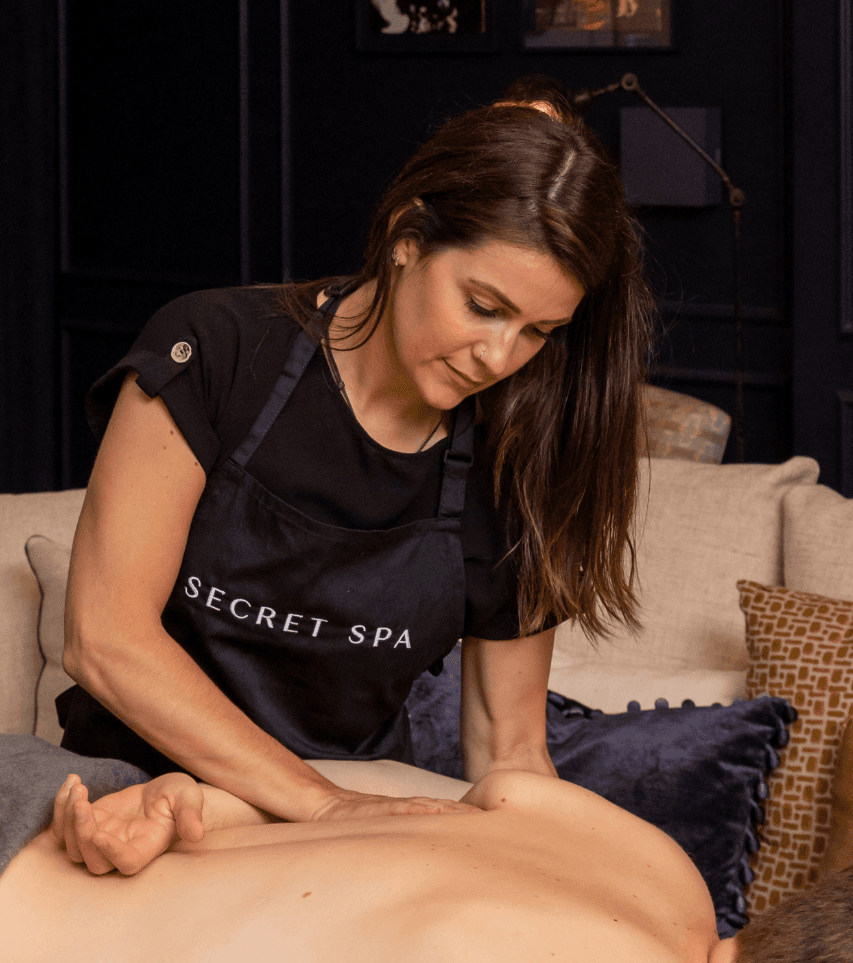Top tips for banishing the blemishes & fading acne scars
Nov 1, 2021
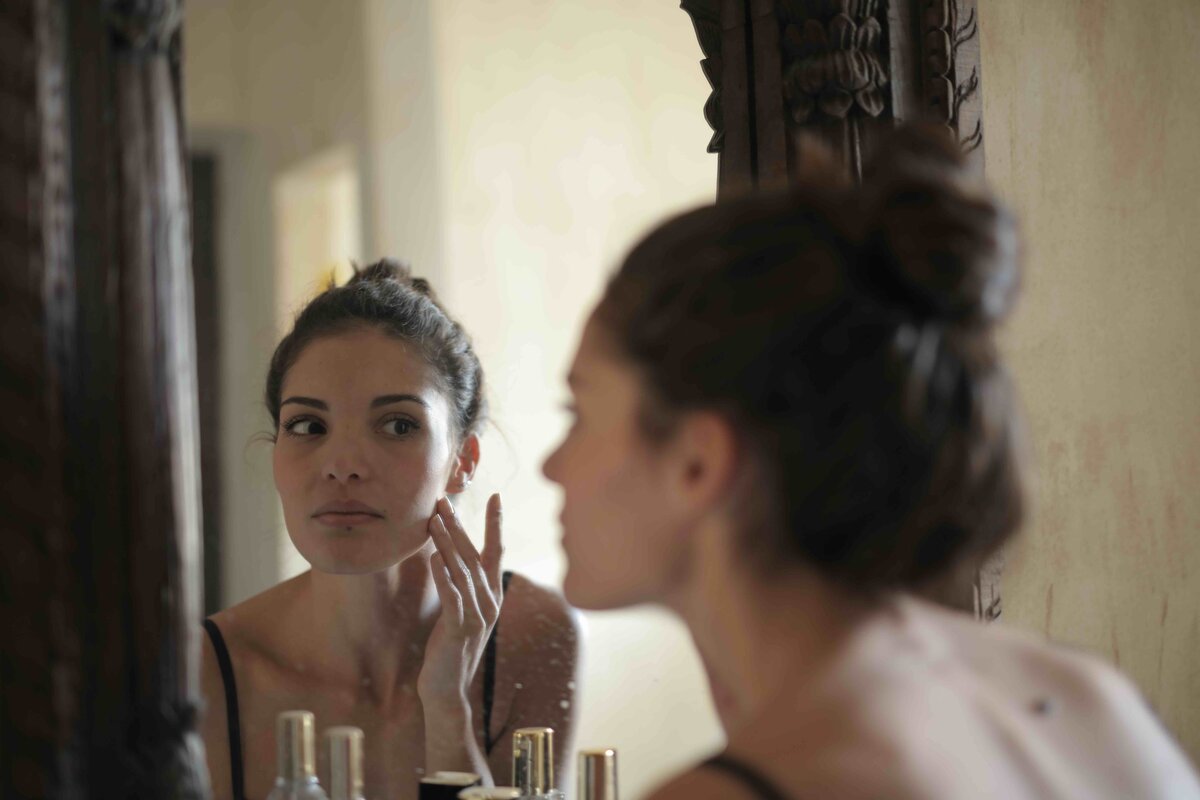
If you’re someone who has suffered with acne (or still does), fear not, help is at hand. Although the scarring, pitting and discolouration can remain long after the outbreak is over, there are steps you can take to help fade the signs of acne. Plus, there are some innovative treatments that can really help the skin’s natural healing process along. So if you want to know how to get rid of acne scars, don’t go anywhere. You can find all the top expert tips to get rid of acne right here.
Why does acne cause scarring?
Uneven skin tone and textural changes are a result of your skin’s attempts to repair itself as well as the acne outbreak itself. Acne is a result of the pustules – formed from oils, bacteria and dead skin cells – causing the skin follicle’s walls to burst. The skin then goes into overdrive, producing collagen to repair the damaged skin. At first acne leaves only marks, but gradually over time, these can become scars. This is why acne breakouts leave sufferers wondering how to get rid of acne discolouration and scarring, even long after the breakout occurred.
How to fade acne scars
Fortunately, we’re here to share our expert acne tips with you. There are several routes you can take to fade acne scars, but we believe that prevention is always better than a cure. We know that if you’ve already experienced an acne breakout, prevention won’t help much, but you could prevent future acne breakouts. We also share our professional advice for fading acne scars, drawing on traditional and contemporary ingredients and techniques.
Prevention is better than cure
The first of our top tips to fade acne scars starts at the source. Preventing scarring in the first place is always going to be a better option than trying to fade your acne scars. There are several ways to combat acne breakouts:
Stress and the sun
You can combat and reduce acne by reducing your stress levels. Easier said than done of course, but it’s worth taking the time to address your stress management.Another lifestyle tip to prevent acne is to always use sun protection. This will protect your skin from harmful rays and prevent the overproduction of melatonin. According to one of our top facialists, Helen J:“Sun exposure will initially help to promote healing and definitely has a drying effect on the skin improving the appearance of acne. However this will eventually cause the skin to produce more oil as the skin has become dry.I would definitely recommend a light sunscreen that is non comedogenic and non greasy, such as a mineral SPF which will not aggravate or clog pores. The sun will cause aging and further skin damage without using sunscreen.”LED light therapy is fantastic for acne using blue and red light together as this will promote healing. Also in some case antibiotics and topical retinoid creams can see a huge improvement. The skin also becomes much more sensitive when using these creams and thus is why a sunscreen is essential.
Skincare ingredients
It’s always a really good idea to use products that specifically target the problems that lead to acne. Common skin problems that lead to acne breakouts are excess oil and dead skin cells, inflammation and the growth of bacteria. Wonder ingredients that can tackle these issues head-on include kaolin clay, niacinamide, salicylic acid and thymol. Kaolin can cut sebum levels, as can thymol. The latter also has antibacterial properties. Salicylic acid can sweep away dead skin cells, while niacinamide can assist in fading pigmentation marks before they even become scars. Our favourite products include The Ordinary Niacinamide + Zinc, Algenist Niacinamide Moisture Veil and Paula’s Choice Resist Serum.
Uncover new skin
Uncovering fresh and glowing new skin can provide a fast-track route to cleaner, clearer skin. The most commonly used ways to reveal new skin cells include exfoliation, chemical peels and microneedling.
Exfoliation
Exfoliation is one of the simplest tips you can follow to help clear up acne. Use a gentle exfoliant bi-weekly, followed by a nourishing formula to prevent the overproduction of sebum. Gently removing dead skin cells in this way can help retain smooth-textured skin.
Skin peels
Skin peels are another method of revealing fresh new skin. In this case, chemical peels are used by professionals to slough off old, scarred skin cells. This allows new skin cells to grow in their place.
Microneedling
Microneedling may also be used as a means of stimulating collagen and elastin production. Microneedling involves using a special needle to create miniscule wounds on the skin. In response to these wounds, the skin produces more collagen and elastin.
Get your vitamins
Sometimes the best skin tips for acne are the simplest. By adding in more vitamins to your skincare routine, you can reduce the impact of acne scars. Vitamins A and C are especially helpful when trying to fade acne scars.
Vitamin C
The widely available ingredient vitamin C is found in all kinds of skincare products. It’s capable of fading existing dark marks caused by acne, as well as preventing new ones. The reason for this is because vitamin C is effective in protecting the skin from an assortment of environmental stressors.
Retinol
Retinol is a formulation of Vitamin A. This particular vitamin can be incredibly helpful when trying to win the war against acne scarring, pitting and pigmentation marks. Retinol is found in many skincare formulas because it can lead to a higher rate of skin cell turnover. This can help to reduce the discolouration that remains after an acne breakout. We love The Ordinary Retinol Serum, the Drunk Elephant A-Passioni Retinol Cream and the Sunday Riley Juno Face Oil. Just bear in mind that retinol can cause irritation to sensitive skin, so it needs to be used correctly. One of our top facialists, Jennifer S, recommends following these steps to get the benefits of retinol without the side effects:
Use a gentle cleanser that helps lock in moisture
Start slow and see how you go. Use a gentle version and increase in intensity and frequency slowly. Start with a pea sized amount twice a week and build up from there to allow your skin to build a tolerance.
Putting moisturiser on before retinol and then again after retinol helps with irritability without hindering the effect of retinol.
Stop using acids while using retinol, as this will help the fight against dry and irritated skin.
Remember that it’s essential to wear sunscreen when using retinol on the skin.
If after all of that you are still not confident to try retinol then why not use a natural alternative like Alfalfa. This has the benefits of retinol without the irritant name tag! Another easy way to treat your skin to all the vitamins it needs is by getting a facial. We recommend the Decléor Vitamin Glow Facial as it’s jam-packed with all the vitamins your skin could want, and gives instant results.
Traditional and modern remedies
There’s no one cure-all method to treating acne and reducing scarring. Both the latest cutting-edge research and old tried-and-tested methods have something to offer when it comes to acne treatment. Contemporary approaches may include the use of LED light or lasers, while old school techniques centre around key wonder ingredients like honey, aloe vera, lemon juice and coconut oil.
Traditional ingredients
Traditional ingredients from old wives’ tales do actually have some scientific backing when it comes to acne treatments. Many modern skincare formulas incorporate these skin-nourishing ingredients into their products. Although lemon juice may not seem like an obvious wonder ingredient, citrus extracts are often included in skincare ranges. Our favourites include La Mer Renewal Oil, Elemis Superfood Fruit Vinegar Liquid Oil and Clarins Plant Gold.Aloe vera, honey and coconut oil are included in a plethora of skincare products. These natural ingredients are prized for their moisturising, calming and nourishing properties, making them a great weapon in the fight against acne and acne scarring.
Modern techniques
LED light therapy to benefit the skin is becoming increasingly popular. The science behind these therapies indicate that applying red LED light to the skin may help it to repair itself. This then helps the skin to recover more quickly after a breakout of acne. According to Secret Spa facialist Helen J, “LED light therapy is fantastic for acne using blue and red light together as this will promote healing.”Another modern method of tackling acne involves the use of lasers. If you’ve heard of laser tattoo removal, then it may make sense to use laser treatment to help repair scarred or discoloured skin. Laser treatment works in a similar way to microneedling, in that the lasers are used to create tiny indentations on the surface of the skin. The skin is then prompted to produce more elastin and collagen in an attempt to repair itself. Laser treatment is a very expensive option to help reduce acne scarring, so may be a last resort for acne sufferers.
Looking after acne-prone skin
Ensuring your skin stays as clean and hydrated as possible can go a long way in combating acne scarring – both at the time of breakouts, as well as later along the line. All of these methods for tackling acne have one thing in common: they are aimed at nourishing the skin while encouraging it to repair itself. As well as establishing a good daily skincare routine, another thing you can do to help your skin along is to book regular facials with a professional beautician. This acts as a deep clean for the skin, and your therapist will also take care to apply products that will benefit your skin the most.Why not take a look at the Secret Spa’s Facial Menu today, featuring vitamin-packed products guaranteed to leave your skin glowing?
Book our
experts today
Related Articles
What is microdermabrasion and what are the benefits?
Oct 9, 2020
How to care for dry lips in winter
Jan 31, 2022
Facials 101: How often to have a facial, aftercare advice and benefits
May 12, 2020
What is dermaplaning and should you try it?
May 18, 2021
10 best superfoods for glowing skin
Feb 25, 2021
How to revive hangover skin
Aug 6, 2021
